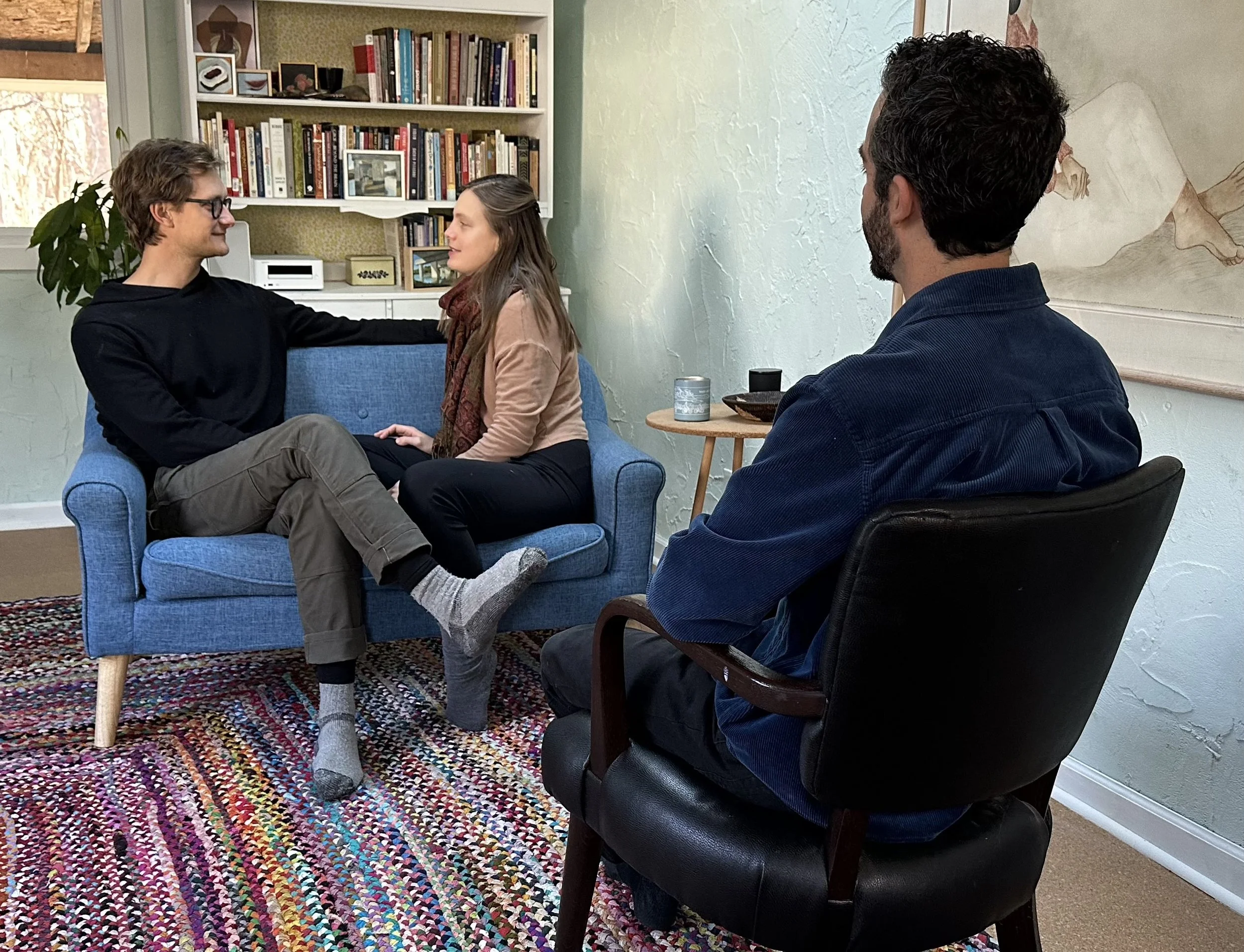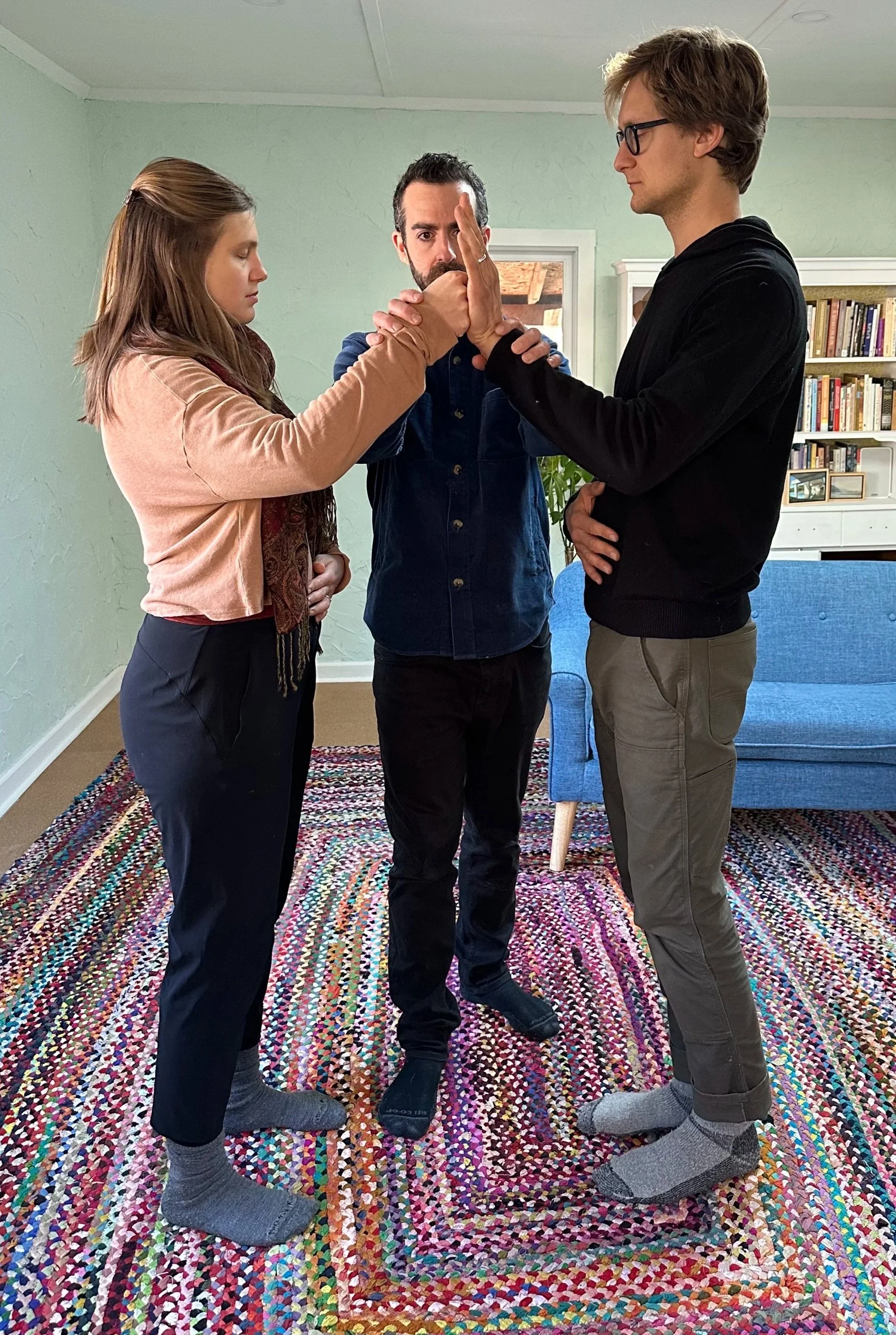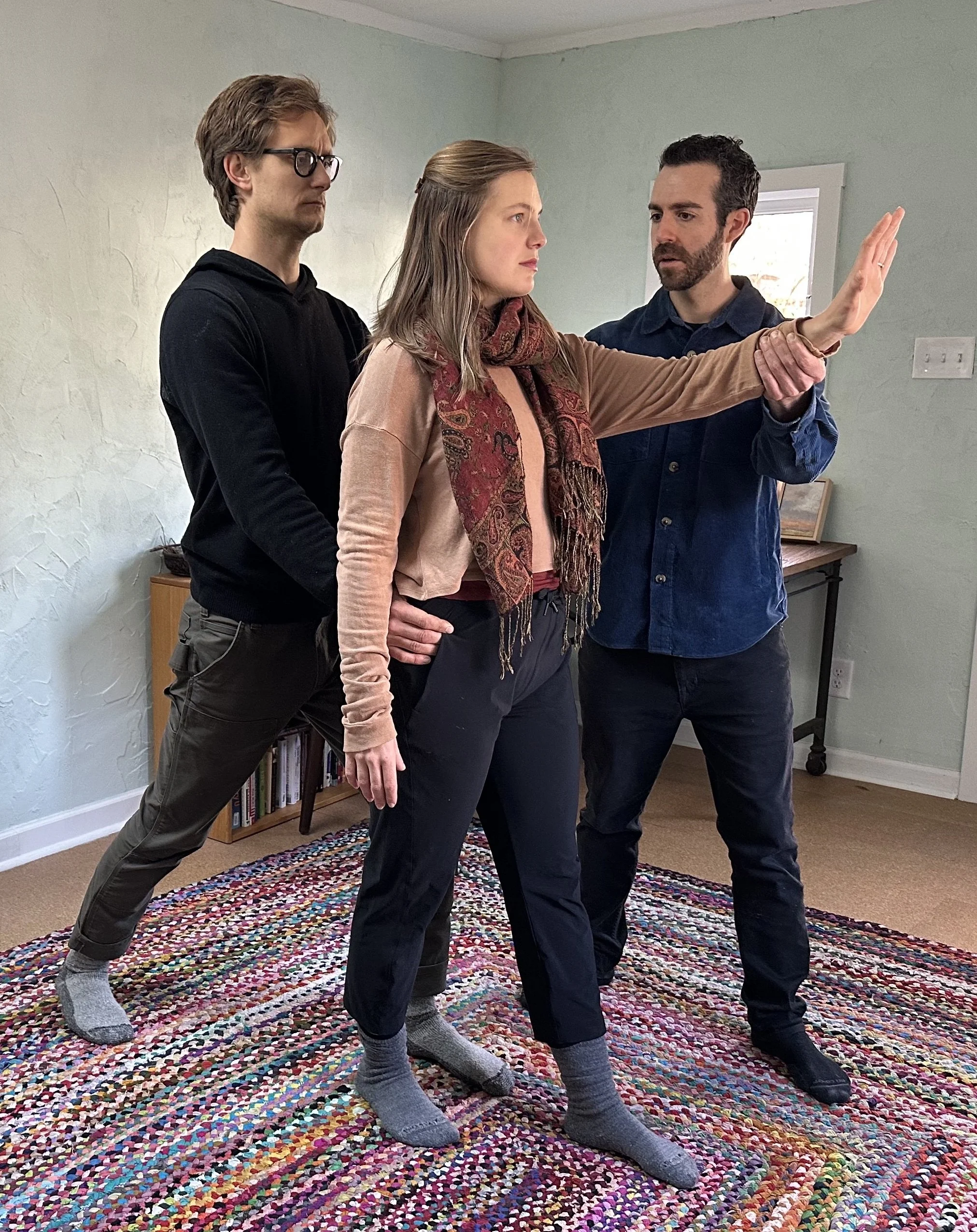Couples Coaching
What is it?
Couples coaching is a dynamic alternative to couples therapy.
I use a body-based “somatic” approach that helps couples figure out what they want for themselves and their partnership, get out of destructive patterns, communicate effectively, and make big decisions together.
What happens in a session?
When we first start working together, we focus on defining the change you want for your partnership. Then each time we meet for coaching, we find a focus for that session based on what obstacle or new skill you need to work on next.
Just like talk-based couples therapy, I make sure that you have the conversations you’ve been avoiding or getting stuck in. Based on what comes up, we spend most of the time practicing new relational skills and learning to manage what happens when you each get triggered.
To disrupt your usual ways of thinking and talking, we use body-based practices where you are standing and moving around, not just sitting. During practices, I guide each of you to become more aware of how you operate and where you get stuck. Then I coach you to try new choices that you’ve struggled with or that are unfamiliar. As we get to know your individual and shared patterns, and find strategies to work within your limitations, we gain insight around what you need to address next.
In between sessions you will get exercises and action steps to make your learning stick.
Couples coaching sessions are typically 60-75 minutes, on zoom or in-person. Most sessions happen with all partners present, but when relevant there can also be individual sessions.
Is it right for me?
Couples coaching is effective when you’re tired of your current dynamic and you don’t just want to vent — both of you want to do the real work to change it.
It might be that the same fight is coming back over and over, there’s been a big rupture that needs serious repair, you need to make a big life decision together, or the mood of your relationship is chronically down. Or maybe you find yourselves stuck in outdated gender roles even though neither of you wants that.
You’re both open to trying a body-based approach that will disrupt your current patterns and teach the skills you need to make changes that last. You want to see results in a matter of months, and don’t want to come back endlessly for help or become overly-reliant on therapy.
This work is helpful for romantic couples but is also great for platonic or work partners. Coaching is beneficial for partners who are really struggling, but can also be transformational for relationships that are going well.
Why is it effective?
Relationships are wildly complex, and illuminate all our limitations and sore spots, no matter how much individual work we’ve done. We can resolve our issues and figure out what we want when we’re away from our partners, and then get tongue-tied and fall back into our default as soon as we’re together again. Somatic couples work is effective because when we get stuck or triggered, our reactions are not governed primarily by our thinking. Our bodies take over and we act in ways that aren’t aligned with what we want. So we need a body-based way to address that.
To transform a partnership in a lasting way, somatics uses practices that address all of the dimensions of its complex relational system. That means we work simultaneously with each person’s thoughts, beliefs, emotions, physical bodies, default behaviors, and reactions to stress. And we go beyond that to explore histories, desires, cultural influences, and physical surroundings that are at play.
Being in tune with our bodies means we can feel for what we really want, and what we’re truly willing to say yes to. Becoming more somatically connected to ourselves and our partners means we make decisions and take actions together that meet both of our needs. We say no to what doesn’t work and get more creative at finding satisfying compromises.
You’ll learn how to listen to your body’s wisdom and gain relational skills that you didn’t have before.
“The conflicts you have with your mate are about each of you becoming the person you most want to be. That’s the opportunity of the relationship. Each of you needs to work through the pain and grow up.”
-
I am committed to increasing access to coaching and healing by offering this work at an affordable rate, and as much as possible I do not turn away clients for lack of funds.
I work on a sliding scale where my suggested contribution is $160/session.
For clients who are not able to pay that full amount, I ask them to pay the most they can.
I trust that people with financial resources and other forms of privilege will contribute at the highest amount, knowing that doing so helps make my support accessible to people with lower incomes and from marginalized identities.
If you have any concern about money, let’s talk about it and I’m confident we will find a mutually satisfying arrangement.
I accept cash, checks, and electronic transfers via Venmo, PayPal, and Wise.
-
Sessions take place at my studio or on Zoom.
My studio is located about 20 minutes north of downtown Durham and 15 minutes east of downtown Hillsborough, NC.
Upon request, I see clients at their homes with a travel fee.
-
No. Couples coaching does not currently fit the requirements for insurance plans. For this reason I offer a generous sliding scale to those with financial limitations.
-
I see clients during normal business hours Monday-Friday, and by special request in the evenings and on weekends.
-
If you’re interested in working with me or would like to learn more, contact me here or schedule a short introductory consultation. This is an opportunity to ask questions, get to know each other a bit, and decide if you’d like me to support you.
I provide clients with a private scheduling link to easily book sessions.
-
There is no minimum commitment to try couples coaching and I encourage clients to begin with 1-2 sessions to make sure it feels like a good fit.
Some partnerships experience profound shifts from a single session, but I strongly recommend committing to 10 sessions if you are trying to make big changes.
Typically this means starting with 3-4 months, meeting weekly or biweekly. This time allows you to find your footing in new practices and start to see the transformational fruits of our labor.
-
Some of the training and methodologies that have influenced my partners approach are somatics, nonviolent communication, weaving togetherness, trauma-informed collaboration, pleasure activism, emergent strategy, hospicing modernity, sociocracy, aikido, linguistics, gestalt therapy, internal family systems, and coyote healing.
When relevant I draw on my own experience as a spouse and parent that has called me into my own healing and growth over many years. My relational toolkit has grown through building a life with two children, a dozen animals, moving to new homes, sharing finances, work collaboration, and tending to shared land. I draw on my professional successes (and equally my failures!) as a leader in high-intensity hospitality management and inside a worker-owned cooperative consultancy.



